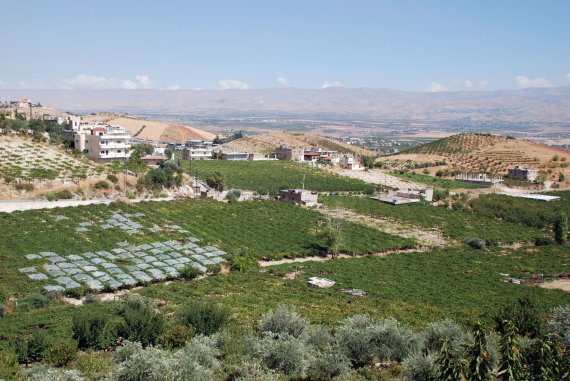Vineyards in the Beqaa Valley in Lebanon, ©Wikimedia
The foremost aim of the project is to strengthen the water and agricultural sectors in Lebanon through careful handling of the scarcely available water. For this project, WUR collaborates with the Amsterdam-based organisation World Waternet and the consultancy agency Acacia Water. While the partners focus mostly on the water quality, ground water and water management, WUR studies the agricultural water usage, explains Herco Jansen, project leader from within WUR. ‘We will collaborate with various companies and groups of farmers, and together with them, we will carry out demonstration projects. These will include greenhouses that have been adapted to the local conditions and specific irrigation advice.’
Climate zones
The input from Wageningen should lead to a more efficient use of the available water by the farmers as well as to an increase in production. Jansen will carry out the research for various agricultural systems, ranging from small-scale farmers to large companies, in different climate zones in Lebanon. The aim is to stimulate innovations in the Lebanese agricultural sector, thus making it more sustainable and improving employment opportunities.
Refugees
The water project is part of a larger programme of the Dutch Ministry of Foreign Affairs to support Lebanon in the harbouring of Syrian refugees. The war in Syria has had significant consequences for the neighbouring Lebanon. More than 1.5 million Syrian refugees have found shelter in Lebanon. While the need for food keeps increasing, Lebanese agriculture is struggling with relatively low harvests. The country has to import ever-increasing amounts of food. The Dutch consortium that includes WUR is using its vast knowledge of water and agriculture to help the Lebanese government with this. The project will last two years and has a budget of 5 million euros.

